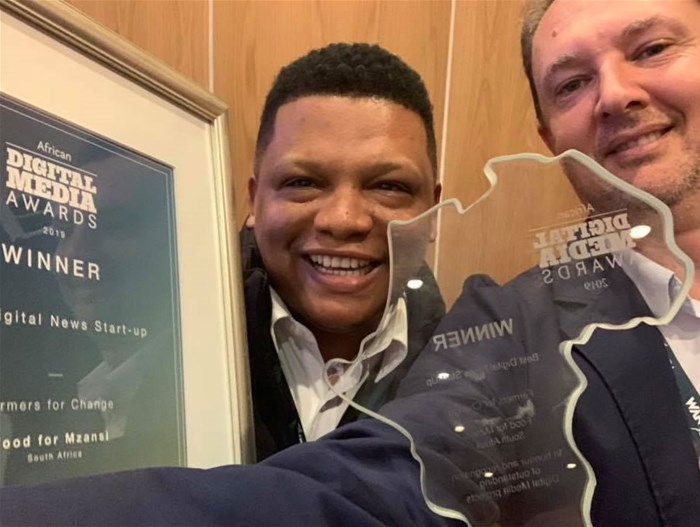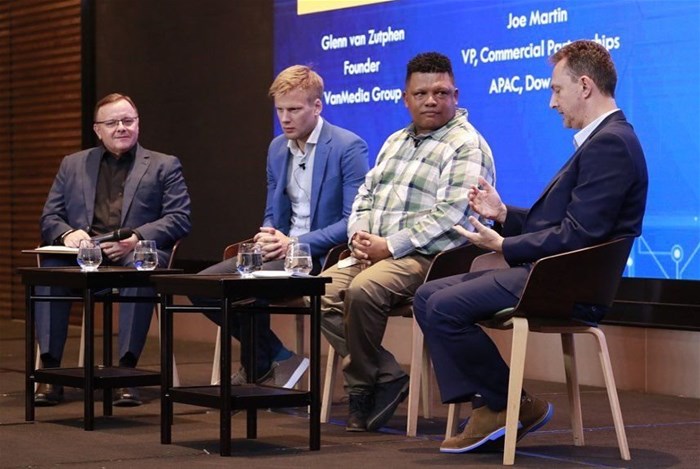
Top stories






More news


Marketing & Media
Ads are coming to AI. Does that really have to be such a bad thing?














We caught up with Louwrens to find out more...
It started with a TV show that co-founder Ivor Price presented, which took him to meet more than 50 farmers on their farms all over South Africa. As a city boy from the Cape Flats, Ivor was struck by how different his experience was to what he had been led to expect by his upbringing and by the media he consumed. Farmers are ageing white men in two-tone khaki, with a tendency to bigotry and violence, right? The farmers he got to know showed him that this stereotype is far from valid.
Ivor and I met as journalists at a daily newspaper 20 years ago and have been good friends ever since. He moved through reporting and media management and ended up in broadcasting, while I followed a similar path to online marketing.
When we discussed his newly gained insights we realised how far apart our perceptions of farming is. As an Afrikaans person, I feel connected to agriculture in a weird way, even though I am as 'town' as can come. We realised that most South Africans don’t share this connection, with many people feeling pushed out or ostracised and linking these feelings directly with agriculture.
Our mission as a social enterprise is to salute the unsung heroes of agriculture. We tell the stories of the farmers and agripreneurs who have been unrepresented until now, because their successes are considered to be below the bar for mainstream agrimedia as well as news media.
We were fortunate to find supporters in the agriculture sector, like the VKB Group, who bought into the vision of using agriculture to fight our stereotypes of one another and remind South Africans of where their food comes from.
We started with the insight that farmers don’t look and act like the stereotypes many of us have. But we’ve discovered a diversity of people and opportunities in the sector that continues to amaze us. We’ve met farmers of all ages, from 19 to 90 years of age. There are women who farm in high heels and make-up and black men in khaki hats and vellies. We’ve met the Muslim woman whose family farming business provides eggs to many Shoprites in the Western Cape, and a young Hindu woman who is an aspiring farmer in KwaZulu-Natal. Also, people who farm with anything from fly larvae and snails to exotic mushrooms and tilapia fish.
Our mission as a social enterprise is to salute the unsung heroes of agriculture. We tell the stories of the farmers and agripreneurs who have been unrepresented until now, because their successes are considered to be below the bar for mainstream agrimedia as well as news media.
We spotted a gap in the media market that none of the established players saw or took seriously, because they were used to looking at the industry in an established way. Our naiveté regarding farming and the agri industry combined with deep media experience turned out to be a winning combination.
Two of our favourite moments were definitely being awarded Best News Start-up in Africa by WAN-Ifra less than a year since we started, and then being invited to share our story at the Digital Media Asia conference in Hong Kong recently.

But I think we are proudest of the fact that we are able to build a media business with such an important social mission, and getting feedback daily from people who have gained new perspectives, or who feel represented in media coverage for the first time.
We’re every bit the scrappy start-up. Budgets are tight and the mission is huge and nation-wide! Part of what helped Food For Mzansi grow quickly was our partnering with an online marketing firm, YehBaby (which I co-own and Ivor co-founded 10 years ago!) to ensure that each piece of content we create works for us on all social media and online marketing platforms.
We also have a very dedicated team of young journo’s who really resonate with the target market, and are superbly multi-skilled.
I’d like Food For Mzansi to be well-entrenched as a mainstay in the agricultural media, that keeps breaking new ground and breaking limits of what the industry thinks is possible or viable.
We’re building a strong, multi-platform brand, run by a team with a real curiosity for our country and continent. With that combination, the sky is the limit and the future sure to be interesting.
Be very focused and sure of the insight you are basing your business on. Be quite ruthless when making decisions to ensure you are not tempted off course by opportunities that are not 100% aligned with the needs of your business or your chosen target market.
Also, be on the lookout for programmes and competitions – even if they don’t bring you funding, they help you refine your proposition and clarify your thinking about your strategy.
Connect with Food For Mzansi via Facebook, Twitter and Instagram